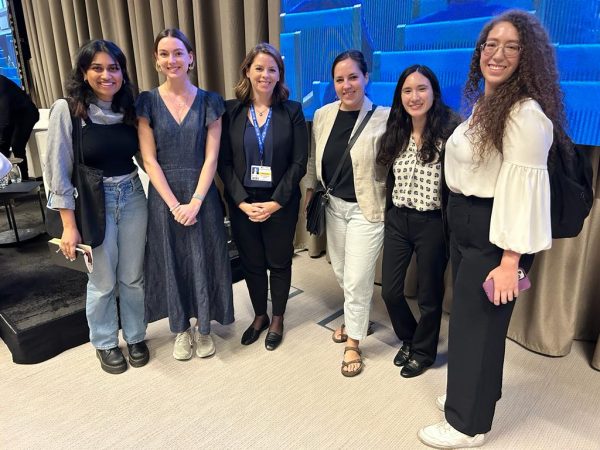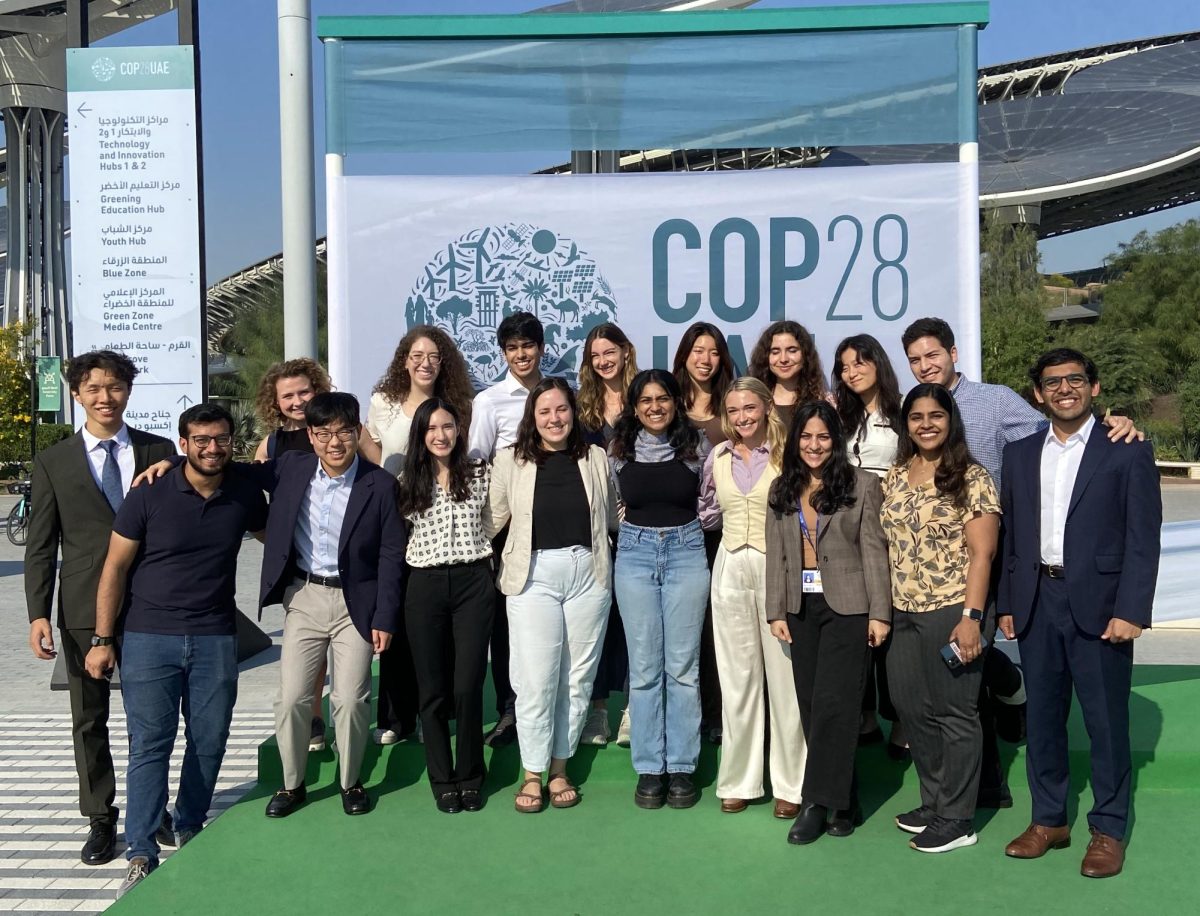The University sent a delegation of 19 students to COP28, the 28th Conference of the Parties of the United Nations Framework Convention on Climate Change, in Dubai from November 30 to December 12. Sponsored by the Energy Policy Institute at the University of Chicago (EPIC) and Career Advancement, the delegation featured participants from the College, the Harris School of Public Policy, the Law School, and the Booth School of Business.
More than 200 parties and 154 heads of states from around the globe attended COP28. As members of the second UChicago-sponsored delegation to attend the conference, students had the opportunity to engage with a variety of climate policy experts and leaders in the public and private sectors. Topics covered at the conference included climate finance, green energy, social justice, and international relations.

“The experience was absolutely fantastic [and] was really energizing in a way,” second-year undergraduate delegate Annie Yang said in an interview with The Maroon. “I think that all of the conversations I had with individuals at COP were absolutely incredible because everyone was so generous with their time and passionate and intelligent. Being in a space with so many other individuals who were really passionate and interested in the same things that I am was just so incredibly inspiring and such a nice change of pace. [COP] really allowed me to take a step back and do what I want to do and what I really care about.”
Second-year undergraduate delegate Haley Coleman told The Maroon that while she was “skeptical” at first about COP being in Dubai, she felt that “it was an important environment to be able to have that conversation [about climate].” The UAE is the world’s seventh-largest producer of oil, and 60 percent of its revenue is from the export of fossil fuels. 3.2 million barrels of petroleum are produced by the UAE each day, a figure which the Abu Dhabi National Oil Company (ADNOC) aims to increase to 5 million barrels by 2030. According to the International Panel on Climate Change (IPCC), carbon emissions need to be reduced in half by 2030 in order to limit global warming to 1.5 degrees Celsius above preindustrial levels.
“I think a lot of the time people feel antagonized by the sustainability movement because they either aren’t included or are blamed for their policies and emissions. But I think the important narrative to have, and is something I really saw in Dubai, is that not only are they part of the problem, because they represent such a big part of the emissions, they also represent such a big part of the solution,” Coleman said. “To be able to have those conversations was something that the previous COPs hadn’t been able to have because they were in countries with lower carbon footprints and fewer connections to the oil industry.”
This isn’t to say that COP28 was without its “ironic moments,” Coleman said. She explained that attendees at the conference were talking about sustainability while “sipping out of plastic water bottles in a 70-degrees-Fahrenheit room.”
COP28 came at a crucial time in the climate crisis, as 2023 was declared the hottest year on record. Despite this, Yang said that COP28 left her feeling generally positive about the future. “Overall, [COP28] left me optimistic because all of the individuals I spoke to were doing really awesome work and making a tangible impact towards more sustainable communities and infrastructure systems. All of the individuals I spoke to were really optimistic about their work and our ability as a collective to deal with climate change.”
Coleman described how her experience at UChicago has shaped her hopeful outlook on the future and sees the solutions to climate change as interdisciplinary and collaborative.
“Coming to UChicago and being able to have conversations about different aspects of climate change rounded out my vision of just how urgent it is [for us to] work on climate change,” Coleman said. “But at the same time, I think going to UChicago has made me a lot more hopeful. [The climate crisis] is something that everyone can work on together. It’s something that [has] a lot of different right answers. While I don’t think anyone is advocating that voluntary action alone will make enough of a difference to solve climate change, ultimately, most policies, and other kinds of actions by larger companies, are influenced by social change.”
COP29 will be held in Azerbaijan, another nation with a large output of fossil fuels, in November 2024. Students interested in applying to be a part of UChicago’s delegation can find more information on the EPIC website.









